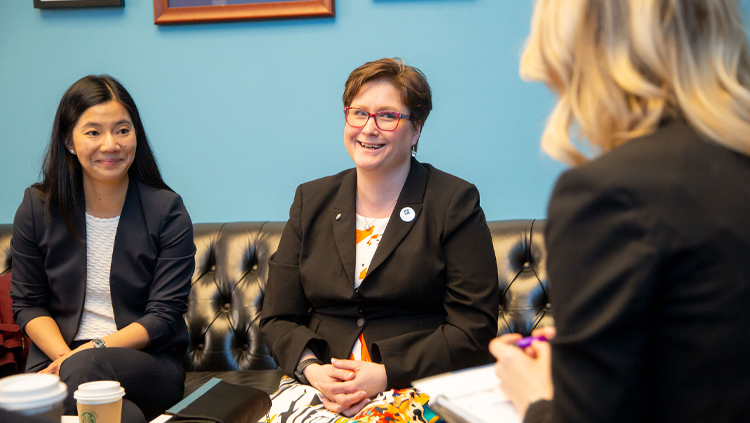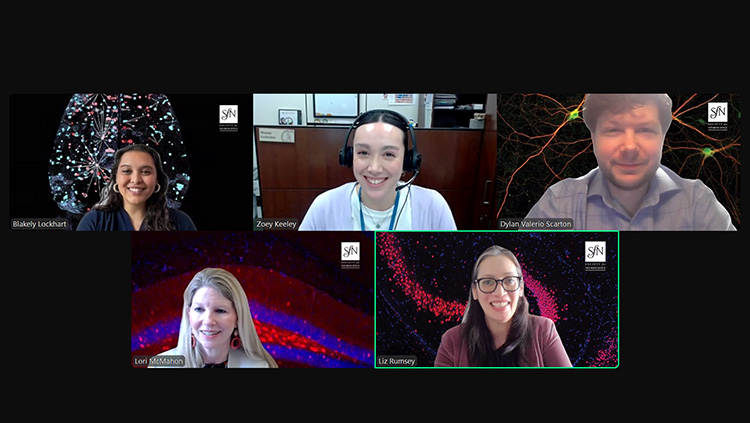
The 19th-annual Capitol Hill Day, SfN’s hallmark advocacy event of the year, took place March 11–March 13, 2025, during which 49 advocates met with 57 congressional offices across 29 states.
Capitol Hill Day brings scientists and federal policymakers together to discuss advances in the field of neuroscience and advocate for SfN’s legislative priorities including strong continued national investment in scientific research through NIH, the BRAIN Initiative, NSF, and the VA Medical and Prosthetic Research Program and the support for the ethical and responsible use of animals in biomedical research. By meeting directly with lawmakers and their staff, scientists can create a personal connection while sharing their expertise to advance research priorities.
Participants included representatives from across SfN’s volunteer leadership, including members of SfN’s Executive Committee, members of the Government and Public Affairs (GPA) Committee and the Committee on Animals in Research (CAR), advocacy key contacts, the 2025 Early Career Policy Ambassadors (ECPA) class, and representatives from a few of SfN’s coalition partners (American Brain Coalition, American College of Neuropsychopharmacology, American Academy of Neurology and Federation of European Neuroscience Societies).
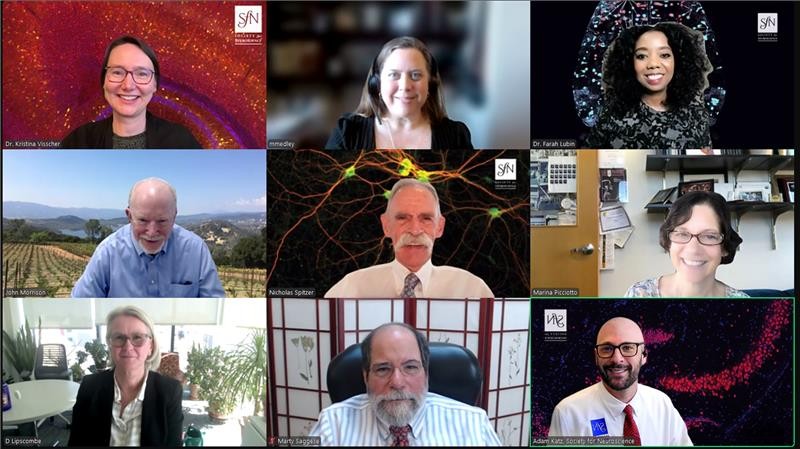
SfN’s Hill Day is a unique experience that brings generations of scientists and industry leaders into the same “room” with a common goal, which was a personal highlight for ECPA Showmick Paul, a senior at the University of Rochester.
“I got to meet some of the biggest superstars in neuroscience, whose work I am a big fan of, so getting to meet them and advocate for neuroscience alongside them is a huge highlight of my career," Paul said. “What stood out most was their encouragement for young scientists like me to take the lead in speaking up and sharing our stories with office representatives, rather than dominating the conversation themselves.”
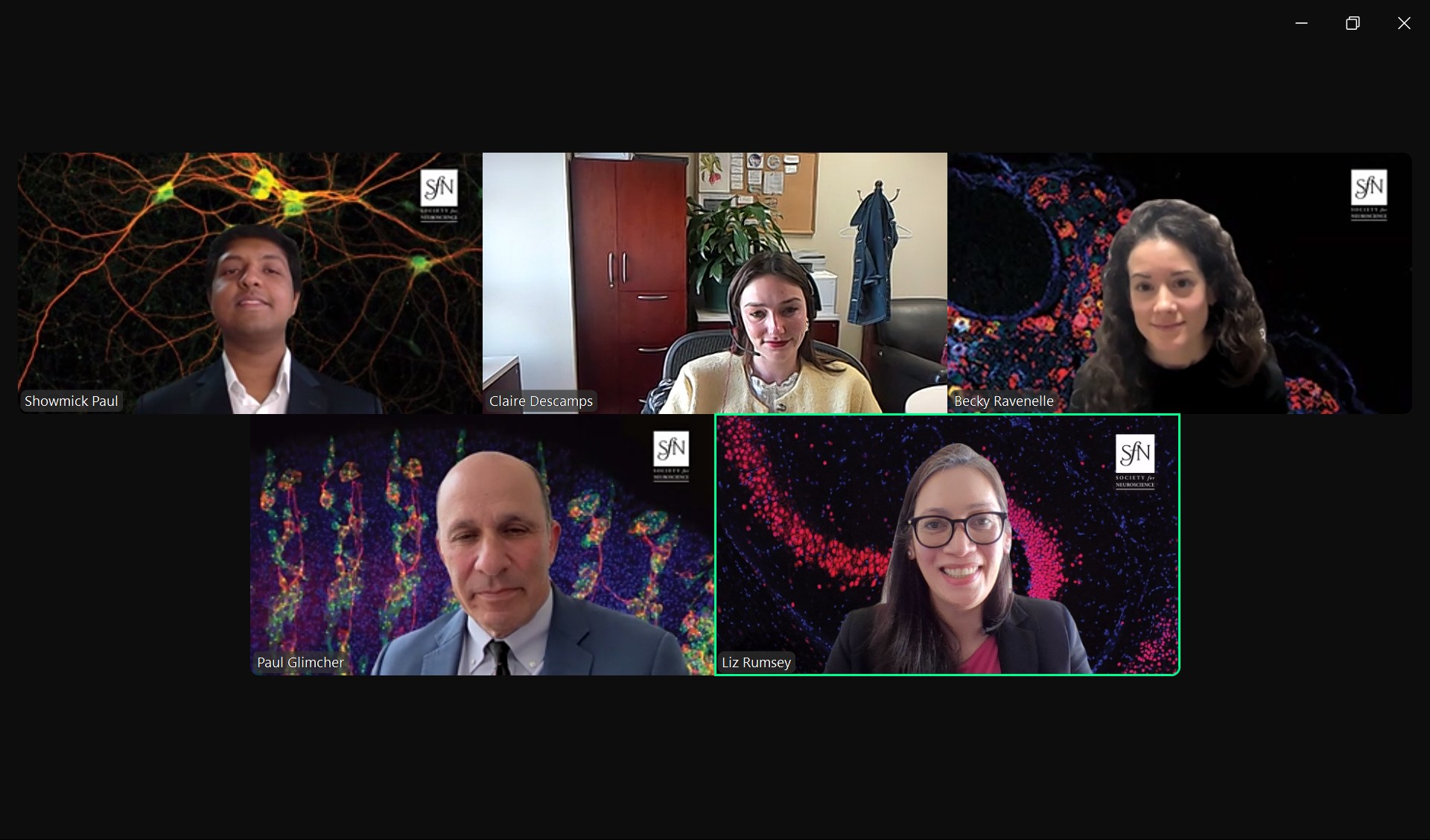
SfN’s congressional asks included urging Congress to support robust funding to neuroscience research in FY 2026 and the ethical and responsible use of animals in research across federal agencies, mitigate and halt the Administration’s destabilizing activities affecting the research enterprise, visit in a lab in their state or district, and join the Congressional Neuroscience Caucus (CNC) in the House of Representatives.
“My meetings with Sen. Alex Padilla's and Rep. Sam Liccardo’s offices were positive and engaging,” said Nicole D'Souza, an ECPA and junior studying neuroscience at UC Riverside. “Staff members showed genuine interest, asked thoughtful questions about my research and SfN priorities, and demonstrated strong support for neuroscience advocacy.”
ECPA Joseph Hennessey, a G1 MD/PhD candidate at the Medical College of Wisconsin, also had a positive experience sharing personal stories related to his research and felt his passion for his career path was understood and appreciated by Kiley Mulligan from Sen. Tammy Baldwin's office and Chris Goldson from Rep. Gwen Moore's office.
“In my meetings, I shared a story about a woman I had met with severe, treatment-resistant depression that failed many courses of treatment. I shared that my research seeks to identify new treatments for people like her, but that I need continued support to carry out this work. I received a lot of support from the offices for what I’m doing, and they reassured me that they wholeheartedly support funding for neuroscience research,” Hennessey said. “It was very encouraging to hear how much they cared about supporting early-career scientists like me.”
Alex Rich, an ECPA and neuroscience PhD candidate at Yale University, met with the offices of Connecticut Sens. Chris Murphy and Richard Blumenthal, both of which have been supportive of neuroscience research, and gained valuable insights on how to support their efforts to save research funding.
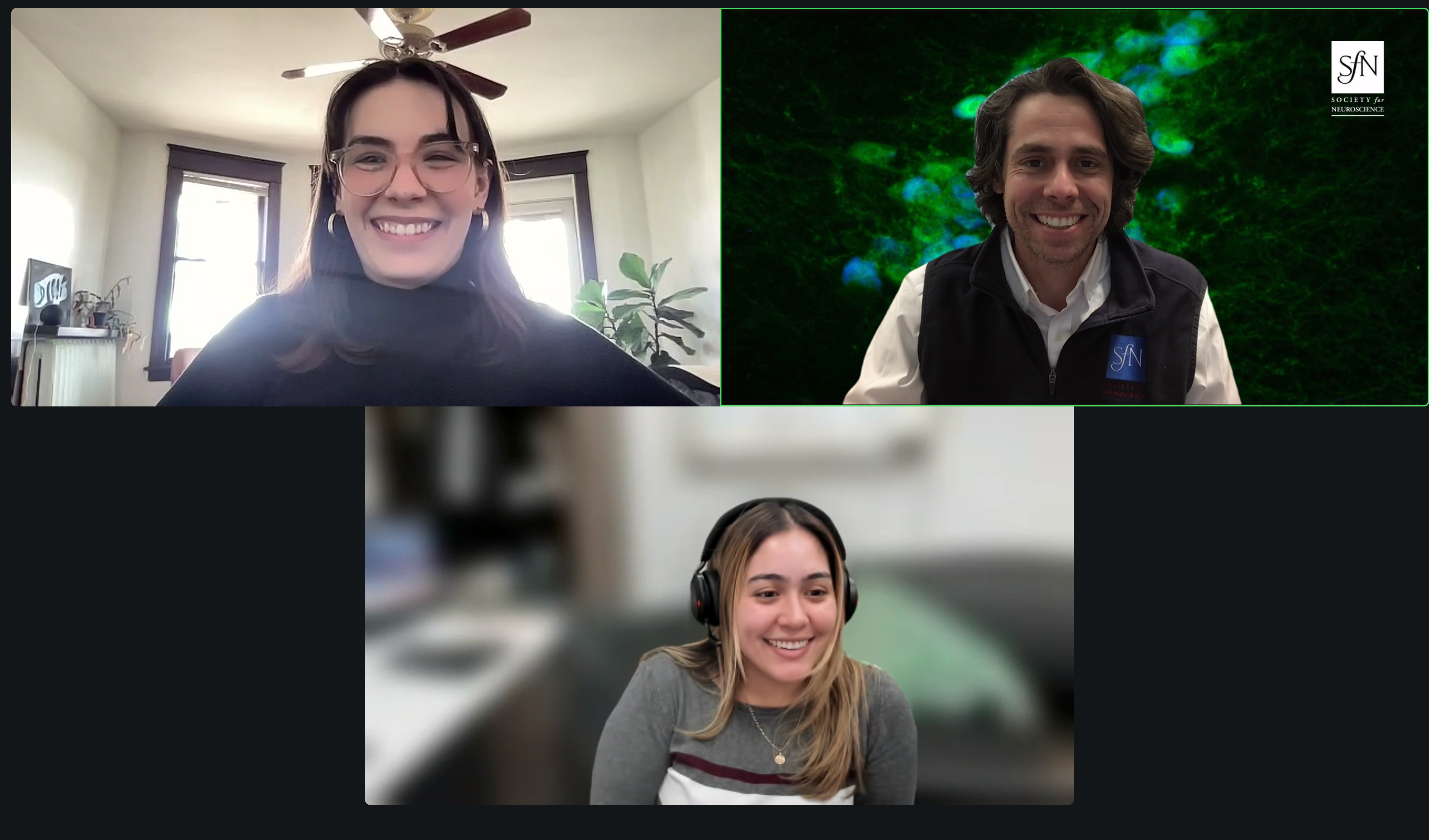

“Sen. Murphy's office told us to build coalitions, talk to the local organizations fighting legal battles in support of science, and make sure they can hear our concerns from the rooftops,” Rich said. "Sen. Blumenthal's office advised us to meet with our representatives, and encouraged our colleagues to do the same, insisting that the quieter yet intentional work can be just as impactful as organizing protests.”
Continuing the theme of making science personal, ECPA Blakely Lockhart, a PhD candidate from Fralin Biomedical Research Institute at Virginia Tech, offered tours to staffers so that they could see the research facilities to provide context of how funding directly impacts research, and she would see the staffers light up with interest in visiting the institute.
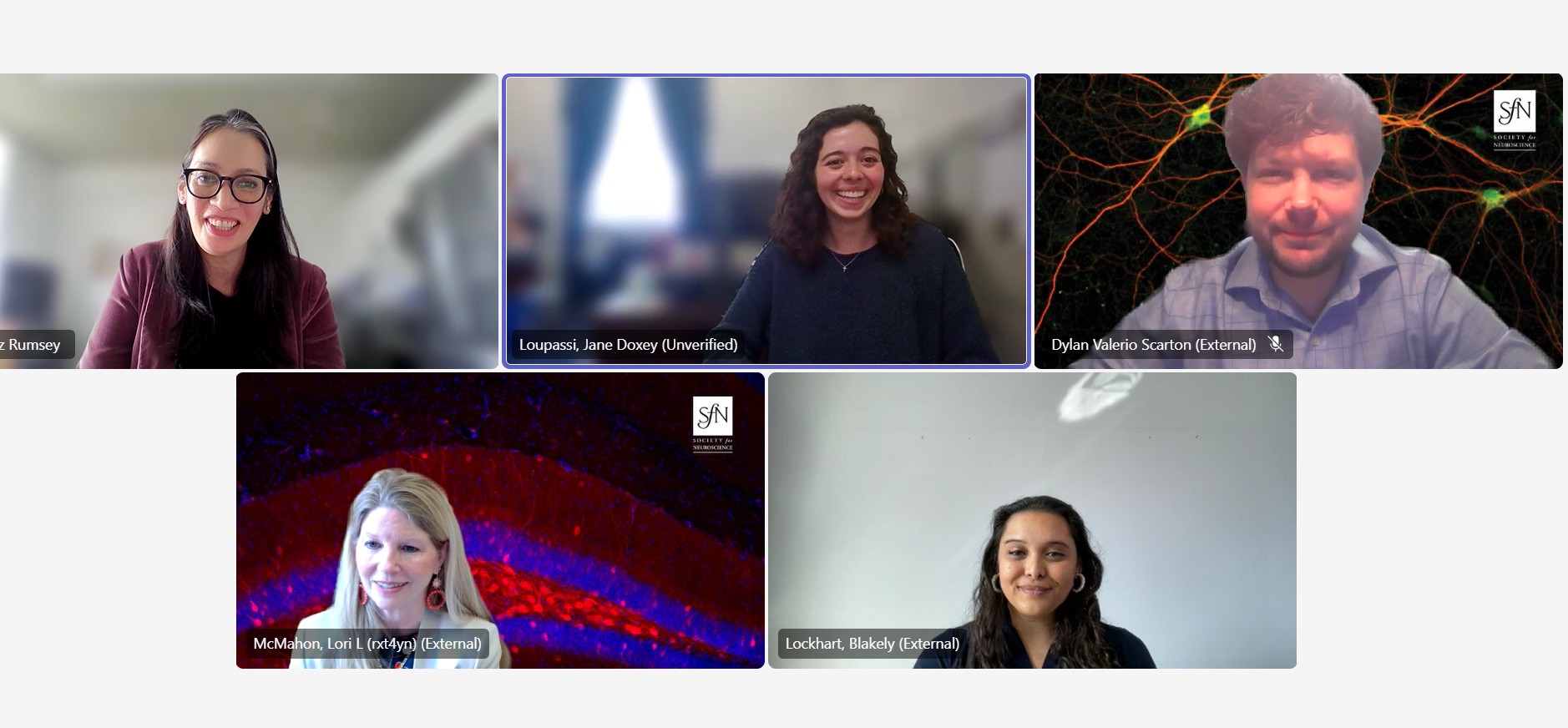
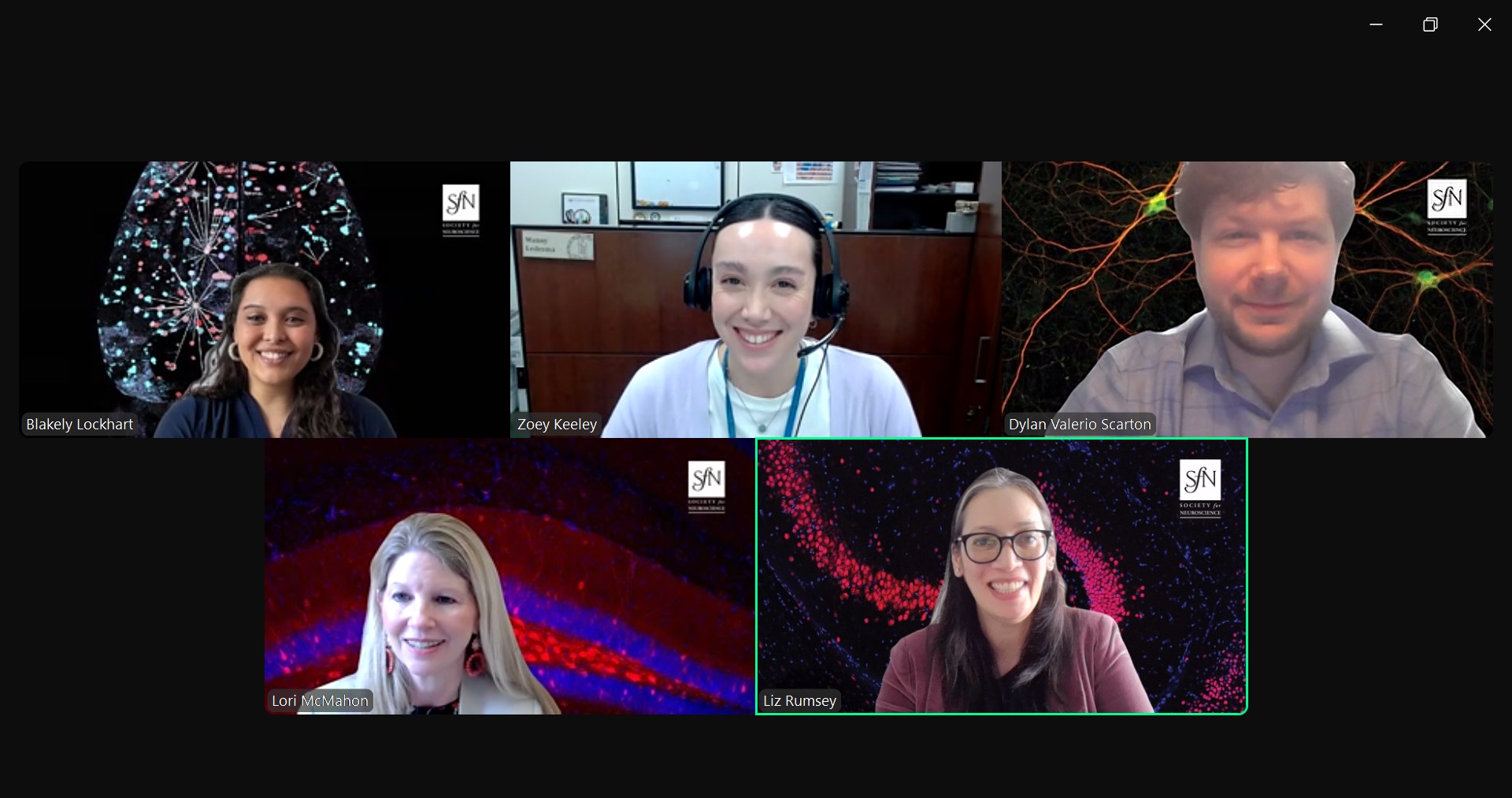
Lockhart and fellow advocates in her meetings also focused on the risk of losing a new generation of scientists and the invaluable knowledge that comes with scientific research.
“Rather than viewing funding solely in terms of materials and equipment, they began to see it as an investment in people and in strengthening the U.S. position on the global stage,” Lockhart said.
Learn more about SfN’s Capitol Hill Day, the Early Career Policy Ambassadors (ECPA) program, and additional SfN advocacy efforts.







